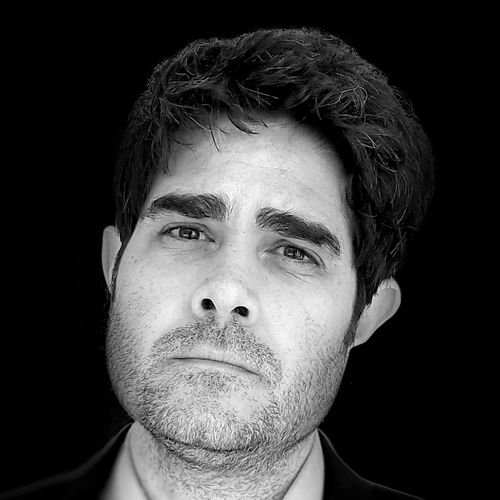The Curse of Lifestyle Leftism
Thomas Fazi

Die Selbstgerechten: Mein Gegenprogramm—für Gemeinsinn und Zusammenhalt
By Sahra Wagenknecht
Campus Verlag, 345 pages, €24.95 ($27.80)
By Sahra Wagenknecht
Campus Verlag, 345 pages, €24.95 ($27.80)
Germany’s Die Linke (Left) party is in crisis. Born in 2005 from the merger of an East-German left faction and a smaller West-German one, Die Linke’s support skyrocketed to 12 percent of the vote in 2009’s elections to the Bundestag, a level of support the party maintained for nearly a decade—to the alarm of the political establishment. More recently, however, the party’s electoral support and labor-union base have shrunk. In last year’s elections, Die Linke garnered less than 5 percent of ballots and lost nearly half its seats—its worst result ever. Its share of the union vote slid to 6 percent, down from 17 percent in 2009.
Until recently, Sahra Wagenknecht was one of Die Linke’s most prominent members. Catapulted to the Bundestag in 2009, she was a deputy leader of the party from 2010 to 2014. In the Bundestag, she served as parliamentary co-chairwoman of her party from 2015 to 2019 and as leader of the opposition (against Chancellor Angela Merkel’s grand coalition) until 2017.
Wagenknecht announced her resignation as parliamentary leader in November 2019, citing burnout. Yet many believe her decision was at least partly motivated by the party becoming increasingly captured by the kind of “progressive neoliberalism” (to borrow Nancy Fraser’s term) that seems to have infected, to one degree or another, all Western left-wing parties, precipitating their decline.
The neoliberal malaise of the modern left is the subject of Wagenknecht’s latest book, Die Selbstgerechten (“The Self-Righteous”), published last year. Over the past few decades, Wagenknecht argues, the left has undergone nothing less than a full-blown anthropological mutation. She writes,
‘Left’ was once synonymous with the pursuit of justice and social security, resistance, and revolt against the upper-middle classes, and commitment to those who were not born into a wealthy family and had to support themselves through their (often backbreaking) labor. Being on the left meant pursuing the goal of protecting these people from poverty, humiliation, and exploitation, helping them climb the social ladder, and making their lives easier, more secure, and more grounded. Those on the left believed in the ability of politics to shape society within the confines of the democratic nation-state. They believed this state could and should shape and correct market outcomes. Of course, there have always been great differences even among supporters of the left. But on the whole, one thing was clear: Left parties—whether they were social-democratic, socialist or, in many Western-European countries, communist—didn’t represent the elites, but the most disadvantaged.
And, perhaps most important, the members and militants of left parties largely hailed from the lower-middle working classes they aspired to represent. Wagenknecht calls this the “traditional left.” Today, it has all but disappeared.
Rather, today’s progressive movement has come to be dominated by what Wagenknecht calls the “lifestyle left.” Its followers, who often tend to (erroneously, Wagenknecht contends) describe themselves as left-liberals, “no longer place social and political-economic problems at the center of left-wing politics. In the place of such concerns, they promote questions regarding lifestyle, consumption habits, and moral attitudes.”
Lifestyle leftists are cosmopolitan and staunchly “pro-European” (that is, pro-European Union). They care about the climate and stand up for emancipation, immigration, and sexual minorities. They are convinced that the nation-state is, or should be, on the verge of extinction. Members of the lifestyle left also tend to prize individual autonomy and self-realization above tradition and community. Since lifestyle leftists hardly ever suffer real financial hardship, they show little real interest in working-class economic concerns. Of course, the goal remains that of a “just” and “nondiscriminatory” society, but the path to get there no longer passes through the old themes of the political economy—wages, pensions, taxes, unemployment benefits, and the like—but through symbols and language.
This is true not just of mainstream center-left parties, such as the Democrats in the United States, Britain’s Labour, or Germany’s Social-Democratic Party, which have openly embraced neoliberal economics, but also of “radical” left parties. The latter might take a critical stand against neoliberalism and even capitalism, and they may even openly advocate “socialism.” Yet as far apart as the mainstream and radical left may seem at first glance, their “cultural” outlook is very similar: urban, cosmopolitan, pro-globalization, pro-immigration, pro-identity politics. They are equally oblivious to the fact that the institutions and policies they support—the European Union, poorly managed immigration, “flexible” labor markets—have benefited big capital while making the lives of working-class people more precarious. Of course, these policies have also favored the material interests of academic and intellectual middle classes in metropoles, which, uncoincidentally, happens to be the social base of the new left.
“Radical” leftists in particular seem to ignore the ways in which their cultural outlook tends to reinforce the economic injustices they claim to fight. As Wagenknecht writes, “left liberalism and its identity politics, which urges everyone to define their identity on the basis of their origin, skin color, sex, or sexual inclination … creates rifts precisely where solidarity is urgently needed.” The result is a loss of “social union,” which everywhere is replaced by “separate and distinct groups. This doesn’t just undermine solidarity in workplaces; it also destroys the sense of belonging of the community as a whole, that is, the most important precondition for solidarity and social justice.”
Part of the problem is that left militants, of all shades, have become not only culturally, but even physically detached from the proletariat. Wagenknecht laments the fact that, “to the extent that the well-off, big-city academics meet the less-advantaged in real life at all, it is in the form of cheap service workers, who clean their flats, carry their parcels, and serve them sushi in the restaurant.” While these militants and intellectuals claim to speak on behalf of “the workers,” in reality they despise and decry the values and lifestyle of the underprivileged—their problems, their grievances, their anger.
To the left’s eyes, every critic of immigration is a Nazi in disguise, just like anyone who feels an attachment to his home country; anyone who doesn’t believe in transferring more and more power to undemocratic institutions such as the European Union is a nationalist; anyone who criticizes higher fuel and heating-oil prices is a climate-change denier; anyone who doubts the wisdom of continued lockdowns and raises legitimate questions about the Covid vaccines is a conspiracy theorist and an anti-vaxxer; anyone who is afraid of the potentially disastrous consequences of a conflict with Russia is a Kremlin stooge.
Indeed, as Wagenknecht notes, extreme intolerance of dissent is another common denominator among all factions of the modern left. This leads Wagenknecht to conclude that these so-called liberal leftists are neither left—in the traditional sense of the word—nor liberal: While “they support an open and tolerant society, they tend to show an incredible intolerance toward all opinions other than their own, to a degree that leaves nothing to envy to the far right.”
“What makes the representatives of this fashionable left so unpleasant in the eyes of many and especially the less fortunate,” Wagenknecht writes,
is precisely the innate tendency of liberal leftists to judge their privileges as personal virtues, and to present their worldview and lifestyle as the quintessence of responsibility and progressivism. It is the self-satisfaction of those who consider themselves morally superior, which happens frequently on the lifestyle left, the too-insistent conviction that they are on the side of good, right and reason. … It is the undeniable lack of empathy toward all those who have to fight much harder for a bit of well-being and who, perhaps also for this reason, tend to be a bit rougher around the edges.
It’s no wonder, she argues, that “the left today no longer stands for justice in the eyes of many people, but above all for self-righteousness.” The instinctive repulsion many ordinary people feel for the left nowadays is, of course, one of the main reasons for its electoral decline. However, the truth is even more uncomfortable, Wagenknecht suggests: Lower-middle working classes today tend to overwhelmingly vote for right-wing figures and parties, such as France’s Marine Le Pen and Law and Justice in Poland, because the latter tend to offer more redistributive and pro-labor—that is, more “left-wing”—economic platforms than nominally left parties.
To reverse this decline, Wagenknecht makes the case for what she calls “left conservatism”: a left that returns to its original mission of improving the lives of the working and middle classes but also understands that doing so means rejecting globalism—turning, instead, to the democratic nation-state as the only terrain on which it is possible to collectively challenge capitalism. Such a left appreciates that states should take care of the well-being of their own citizens, especially the most underprivileged, before they can for newcomers from far-flung places. Such a left, finally, recognizes people’s need for “recognition, belonging, and community.”
Wagenknecht urges the left to understand that many people “subscribe to conservative values, because they want stable communities, just like the workers of the past. And that an orderly world, stability, and security in life, democratic societies with a true feeling of belonging and trust in other people, are not only the past, but can also be the future.” Hear, hear.






Geen opmerkingen:
Een reactie posten